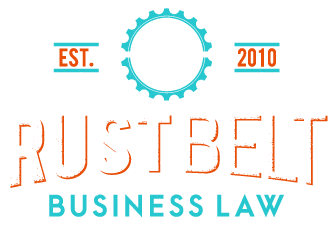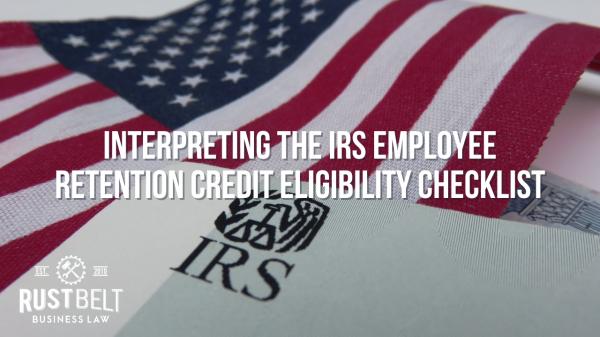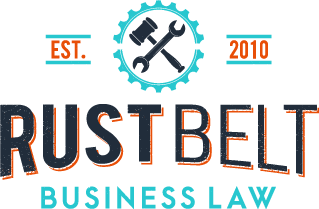For business owners facing the complexities of the Employee Retention Credit (ERC), a recent IRS Q&A publication provides vital assistance in understanding this intricate tax credit. The ERC, designed to support businesses and tax-exempt organizations that retained employees during the COVID-19 pandemic, has become increasingly complicated due to aggressive marketing and misinformation, plus outright fraud by some ERC mills. Since the credit was created in March of 2020, it's now a multi-billion dollar industry to help businesses claim this complex credit. In this blog post, we'll help you understand key information from the IRS's ERC Eligibility Checklist, published on September 14, 2023.
Addressing Business Owner Concerns:
Business owners encountering ERC-related issues may be grappling with various concerns, including financial strain, compliance worries, operational disruption, and fears of legal repercussions. The complexity of ERC rules and the potential audits, penalties, and interest only add to the challenges. Moreover, the prolonged processing times for audits and compliance reviews can exacerbate uncertainty and financial instability. There are also concerns about future eligibility for government relief programs or tax credits due to compliance issues.
The IRS ERC Eligibility Checklist:
The IRS has published an ERC Eligibility Checklist to help businesses and organizations quickly determine if they qualify for the ERC. This comprehensive guide aims to simplify the complex eligibility criteria for this tax credit, and help the IRS combat the number of suspected fraudulent claims they've been receiving. Here's a summary of the key points:
Part A: Checking your eligibility
- Determine if you had employees and paid wages between March 13, 2020, and December 31, 2021.
- If you were a self-employed individual with no employees or a household employer during this period, you may not be eligible.
- Assess whether your trade or business experienced a significant decline in gross receipts during specified eligibility periods in 2020 or the first three quarters of 2021.
- If you were a recovery startup business, you may qualify, but specific gross receipts requirements apply.
- Verify if your business was fully or partially suspended by a government order related to the COVID-19 pandemic in 2020 or the first three quarters of 2021. The suspension must have resulted from a government order, not just guidance or recommendations.
- Be cautious if you're claiming the ERC due to supply chain issues, as this is a common point of confusion, and supply chain disruptions alone may not qualify you.
Our firm, together with our sister company Pennywise Tax Strategies, has helped hundreds of clients navigate the most complex aspects of ERC eligibility. We are available to give you a second opinion, whether or not someone else has told you that you will qualify.
Part B: Claiming the ERC if you're eligible
If you meet the eligibility criteria, ensure you maintain thorough records of wages paid, gross receipts, government orders, and other required documents. Consider working with a trusted tax professional to help you claim the credit correctly. The IRS outlines some of the things that trusted tax professionals will do, which many fraudulent ERC mills are unwilling to do. Review the list carefully, and vet your vendors. If your ERC provider is unwilling to sign your returns to the IRS, you might want to ask them why.
Part C: Resolving an improper ERC claim
If you've improperly claimed the ERC, you may have the option to withdraw your amended return if it hasn't been processed and paid. The IRS is also working on a settlement initiative for taxpayers who wish to repay the ERC. Stay updated on these options by visiting IRS.gov/erc, or contact us immediately, as there are tight deadlines to withdraw your improperly filed claim.
Get The Support You Need
As the IRS continues its efforts to prevent improper ERC claims and fraud, staying informed and seeking professional assistance is crucial for businesses to benefit from this tax credit while avoiding potential pitfalls.
If you need assistance interpreting these guidelines to determine your eligibility, or if you suspect your claim may have been misfiled by another company, contact our sister company, Pennywise Tax Strategies, today. Hand in hand with Pennywise, we've helped hundreds of business owners like you process and evaluate their claims, and have uncovered multi-million dollar mistakes made by other companies. Don't wait!




